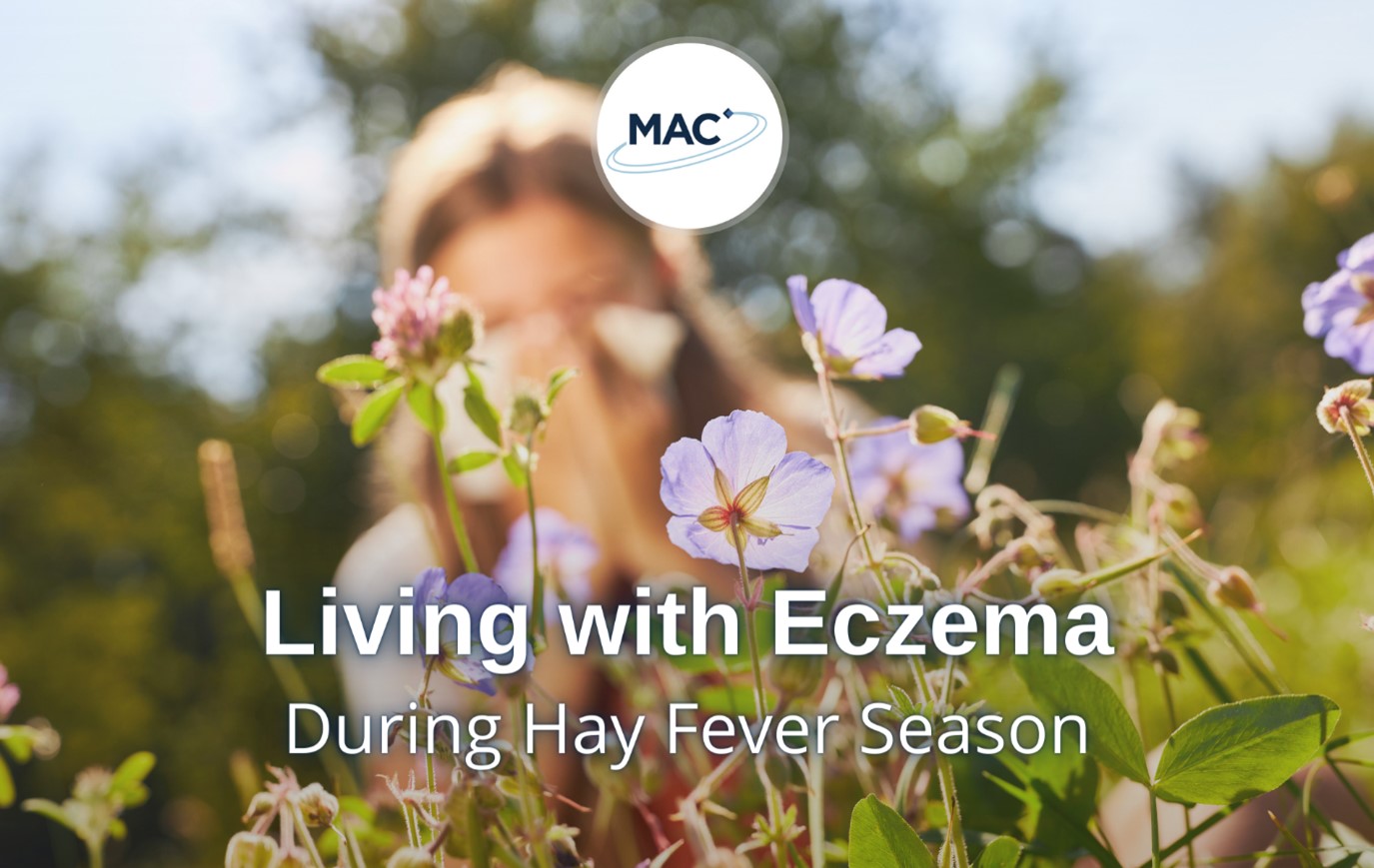Hay fever season is upon us and while it can be troublesome for most of us, for people living with eczema, it can be even more difficult to manage.
Seasonal allergies are usually worst from late March until September, particularly when it’s warm, windy and when the pollen count is at it’s highest. This is because hay fever is an allergic reaction to pollen when it comes in to contact with your mouth, nose, eyes, and throat. Hey fever can cause sneezing, a runny or blocked nose and itchy eyes.
These symptoms are typical of hay fever, but did you know you can also develop a rash as a result of it?
These hay fever rashes, or pollen rashes, develop the same way as other hay fever symptoms, when someone inhales the allergens from pollen and histamine gets released into their blood. Rashes, however, come about when histamine is released into the lower layer of the skin, also known as the dermis. Although this isn’t a common symptom of hay fever, when this does happen, it brings the skin out in an allergic reaction, making the skin inflamed and irritated.
People living with eczema are much more likely to experience hay fever during these summer months. This is because eczema, or atopic dermatitis, is part of what is referred to as the ‘atopic triad’, which is a group of allergic/hypersensitivity conditions that commonly appear together.
Although hay fever does not cause eczema, it can trigger eczema flare-ups, and people living with eczema may find that their condition gets worse during the summer.
Whilst there are several treatment options available for allergies and eczema, many people find that they do not work or that they have unwanted side effects, which highlights the need for more effective treatments.
Research into alternative treatments, such as topical ointments that aim to halt the itch-scratch cycle of eczema, is being conducted at Clinical Research Organisations such as MAC Clinical Research, which is suitable for people aged 18 to 65 who have been diagnosed with eczema for at least 6 months and whose eczema is not responding to usual medications (other eligibility criteria will apply).
By taking part in clinical research studies such as these, you may be able to help yourself and others around the world, and could contribute to new treatment options becoming available in the future
Current eczema studies at MAC are available at clinics in Greater Manchester, Lancashire, Merseyside, South Staffordshire, South Yorkshire, Teesside, and West Yorkshire.
Eligible participants will receive up to £2,230 plus reasonable travel expenses for their time and commitment to this research
To find out more and register your interest, visit our website.






